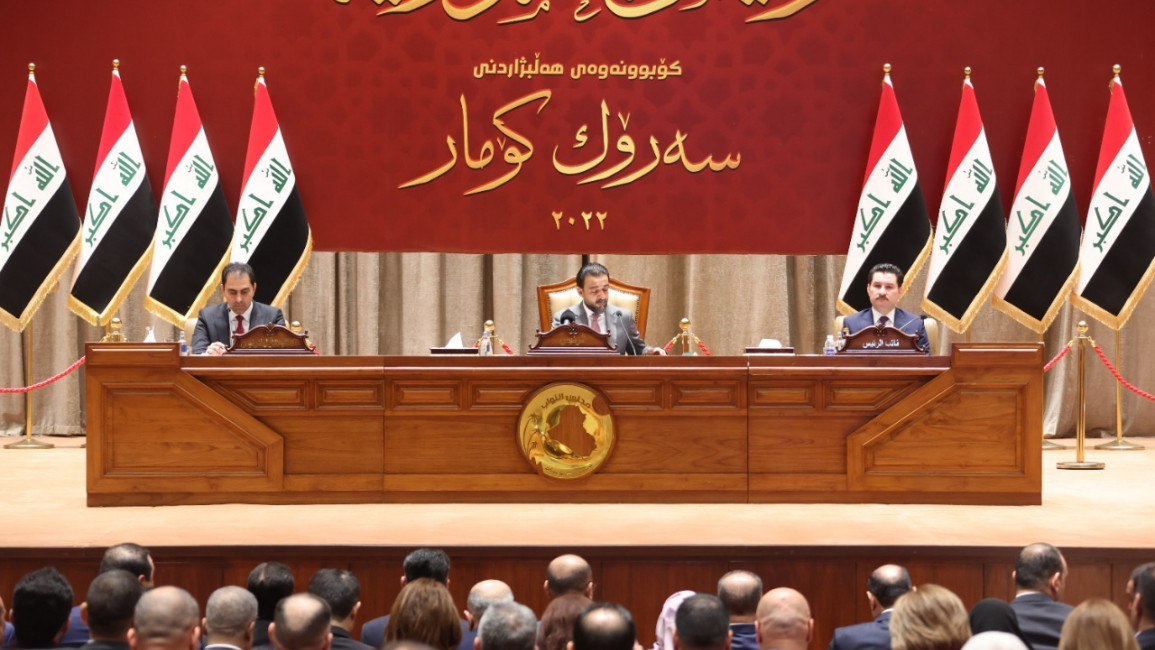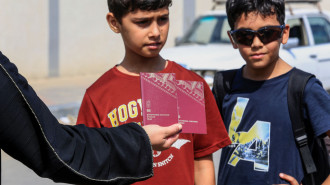Iraqi ruling coalition proposes new date for electing parliament speaker amid backlash from Sunni blocs
Iraq's political crisis over selecting a new Speaker of Parliament deepened, as Sunni factions remain divided for nearly a year after the position was vacated. The ruling coalition has set a new date for the election, sparking backlash from Sunni political groups who say they were excluded from the decision-making process.
The speaker's post has been unfilled since November 2023, when Iraq's Federal Supreme Court removed Mohammed al-Halbousi, leader of the Progress (Taqadum) Party, amid a legal challenge over allegations of misconduct. Since then, parliament has failed five times to elect a replacement, with factions unable to agree on a suitable candidate.
In Iraq, where sectarian power-sharing has been the norm since the 2003 US-led invasion, the contest for the speakership—reserved for Sunni Arabs—has exposed deep divisions, complicating efforts to resolve the impasse.
The Coordination Framework, the ruling Shia coalition, has set 22 October as the date for the election, a move that has angered six Sunni groups who accuse the coalition of side lining them.
"The Coordination Framework forces agreed to hold a session to elect the new Speaker of Parliament next Wednesday," Abdul Rahman al-Jazaeri, a member of the coalition, told Al-Araby Al-Jadeed, the Arabic-language sister publication to The New Arab.
"This crisis cannot be left unresolved, and the only solution is to convene the session as soon as possible," he added.
However, Sunni leaders have pushed back. "The Sunni political forces must resolve the Speaker issue through internal Sunni consensus," Fares al-Fares, a leader of the Sunni Sovereignty Bloc, told Mohamed Emad, a reporter for Al-Araby Al-Jadeed in Baghdad. "Imposing decisions on Sunni forces by the Coordination Framework is unacceptable."
Sunni factions are divided between two candidates: former parliament speaker Mahmoud al-Mashhadani, backed by the Progressive Party, and Salem al-Issawi, supported by the Sovereignty and Azm alliances.
Al-Mashhadani, 74, who previously served as the parliament speaker from 2006 to 2009, is a seasoned politician. He was forced to resign from his previous tenure following accusations of "rude behaviour" towards deputies.
Political analysts say the prospects of electing a new Speaker are slim without unity among Sunni factions. "Any election session without Sunni consensus will likely fail, as the previous five sessions," political analyst Mojash al-Tamimi told Al-Araby Al-Jadeed. He said the Coordination Framework is pushing ahead to give the impression of progress, but may still prefer to keep Deputy Speaker Mohsen al-Mandalawi in place to advance its legislative agenda.
Al-Tamimi noted that the Coordination Framework is also divided over the candidates, further complicating the process. "Some factions within the coalition want to retain al-Mandalawi as acting Speaker to serve their interests," he said.
With more than 55 Sunni MPs and their allies threatening to boycott the session, al-Fares warned that any election session without Sunni consensus is "destined to fail."
He also said opposition forces are ready to block efforts to impose a candidate, insisting the decision must come through negotiation, not "political arm-twisting."
The stalemate continues as Iraq approaches a critical period with upcoming elections and urgent legislation pending, leaving the political landscape in limbo.




 Follow the Middle East's top stories in English at The New Arab on Google News
Follow the Middle East's top stories in English at The New Arab on Google News
![People gathered around the rubble of destroyed houses to search for survivors [Getty]](/sites/default/files/styles/image_330x185/public/2024-11/GettyImages-2184733820.jpg?h=199d8c1f&itok=NiM1LO2f)

